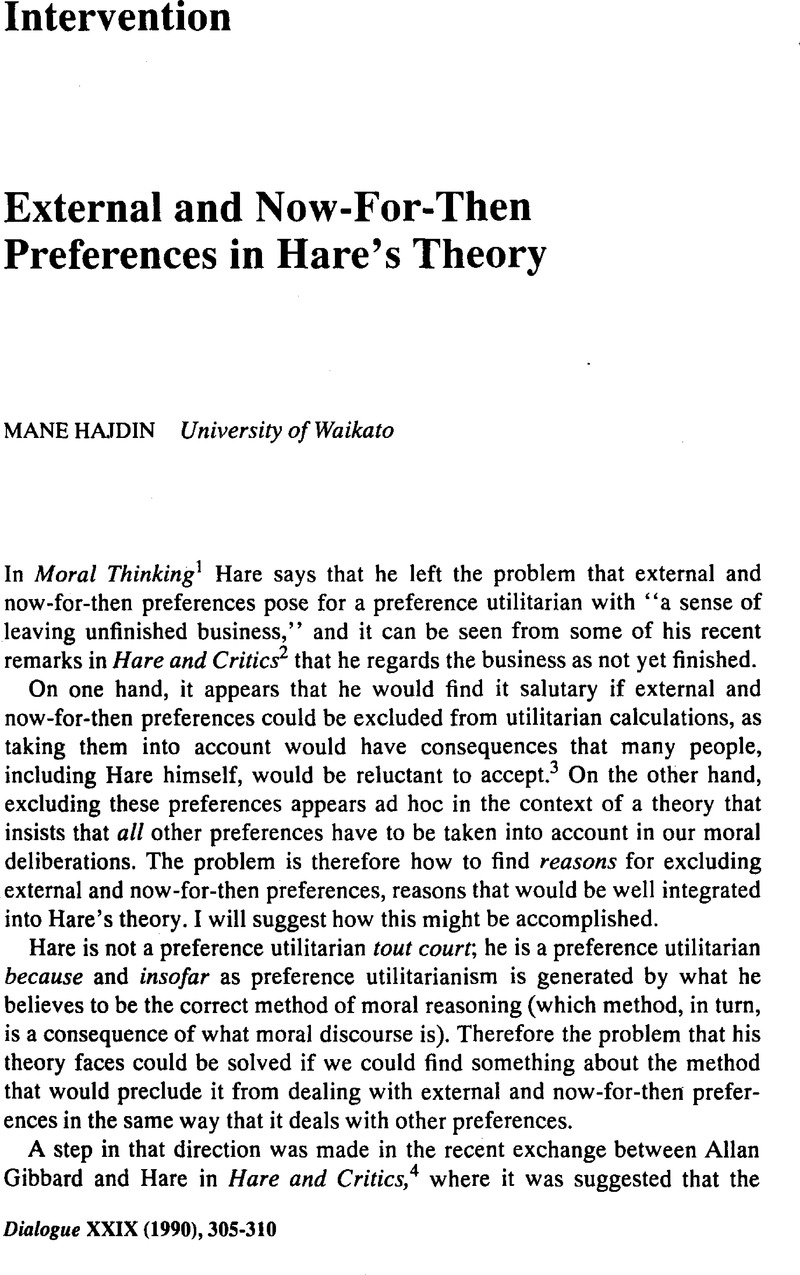Published online by Cambridge University Press: 13 April 2010

1 Hare, R. M., Moral Thinking: Its Levels, Method, and Point (Oxford: Clarendon Press, 1981), p. 104, 105.CrossRefGoogle Scholar
2 Seanor, Douglas and Fotion, N., eds., Hare and Critics: Essays on Moral Thinking (Oxford: Clarendon Press, 1988), p. 234, 266.Google Scholar
3 To be sure, excluding these preferences may also appear to have some consequences that would be difficult to accept, but Hare has argued that they can be avoided by some additional manoeuvers (Hare and Critics, p. 265–266).
4 Allan Gibbard, “Hare's Analysis of ‘Ought’ and its Implications,” in Hare and Critics, p. 57–72; R. M.Hare, “Comments on Gibbard,” in Hare and Critics, p. 229–234.
5 Hare, Moral Thinking, p. 99.
6 Ibid., p. 91, italics mine.
7 Alternatively, it could be argued that one does not fully understand what it is like to have a certain preference unless one has imagined what it is like to have it frustrated. More about that towards the end of this paper.
8 Strictly speaking, the formulation “sufferings and, in general, motivations and preferences” which appears in Hare's statement of the Conditional Reflection Principle, therefore, embodies a category mistake because sufferings are not a species of motivations or preferences; they are a species of preference-frustrations.
9 One could be tempted to respond to this by saying that the rule that one should leave one's own shoes behind, when putting oneself into the shoes of others, applies only to one's preferences and not to one's knowledge, that it is always permissible to bring in any bit of knowledge that might be available. But if this were accepted, then critical moral thinkingwould be incapable of giving us any plausible precepts on how to deal with people's ignorance.
10 Hare neutralizes the latter by introducing the requirement that “we should always have a dominant or overriding preference now that the satisfaction of our now-for-now and then-for-then preferences should be maximized” (Moral Thinking, p. 105). But the manoeuvre of introducing this requirement can easily appear to be ad hoc.
11 This consequence of the account could be rendered fairly plausible if one also argued that the preferences that are genuinely external or now-for-then (and so, according to the account, genuinely ill-formed) are in fact extremely rare, and that most of the apparent expressions of such preferences can be interpreted as misleading expressions of other, perfectly well-formed preferences. For example, one could argue that most of the apparently external preferences against homosexuality are actually non-external preferences for the experience of living in a certain type of social order which is inarticulately believed to be threatened by homosexual practices.